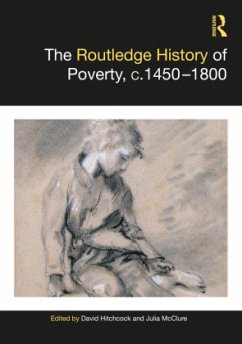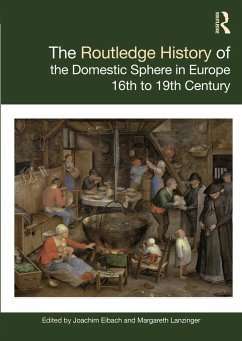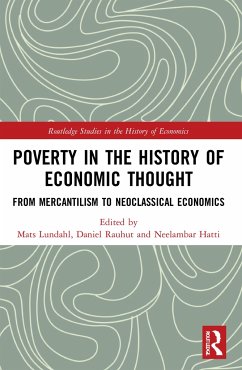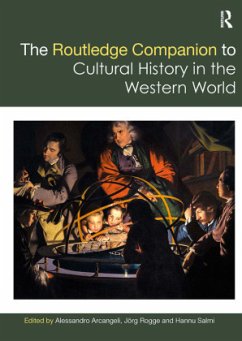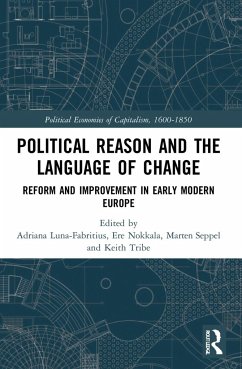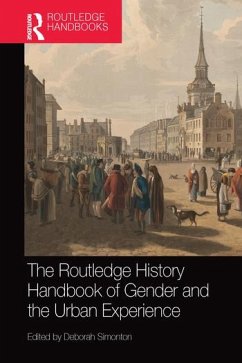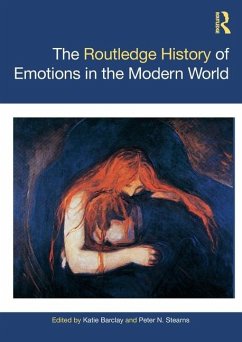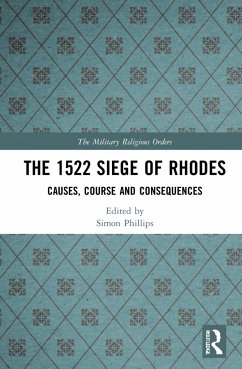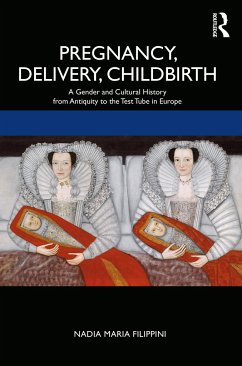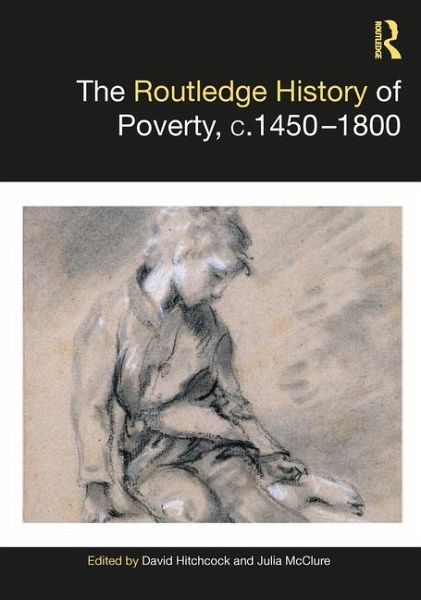
The Routledge History of Poverty, c.1450-1800

PAYBACK Punkte
25 °P sammeln!
The Routledge History of Poverty, c.1450-1800 is a pioneering exploration of both the lives of the very poorest during the early modern period, and of the vast edifices of compassion and coercion erected around them by individuals, institutions, and states.The essays chart critical new directions in poverty scholarship and connect poverty to the environment, debt and downward social mobility, material culture, empires, informal economies, disability, veterancy, and more. The volume contributes to the understanding of societal transformations across the early modern period, and places poverty a...
The Routledge History of Poverty, c.1450-1800 is a pioneering exploration of both the lives of the very poorest during the early modern period, and of the vast edifices of compassion and coercion erected around them by individuals, institutions, and states.
The essays chart critical new directions in poverty scholarship and connect poverty to the environment, debt and downward social mobility, material culture, empires, informal economies, disability, veterancy, and more. The volume contributes to the understanding of societal transformations across the early modern period, and places poverty and the poor at the centre of these transformations. It also argues for a wider definition of poverty in history which accounts for much more than economic and social circumstance and provides both analytically critical overviews and detailed case studies.
By exploring poverty and the poor across early modern Europe, this study is essential reading for students and researchers of early modern society, economic history, state formation and empire, cultural representation, and mobility.
The essays chart critical new directions in poverty scholarship and connect poverty to the environment, debt and downward social mobility, material culture, empires, informal economies, disability, veterancy, and more. The volume contributes to the understanding of societal transformations across the early modern period, and places poverty and the poor at the centre of these transformations. It also argues for a wider definition of poverty in history which accounts for much more than economic and social circumstance and provides both analytically critical overviews and detailed case studies.
By exploring poverty and the poor across early modern Europe, this study is essential reading for students and researchers of early modern society, economic history, state formation and empire, cultural representation, and mobility.





